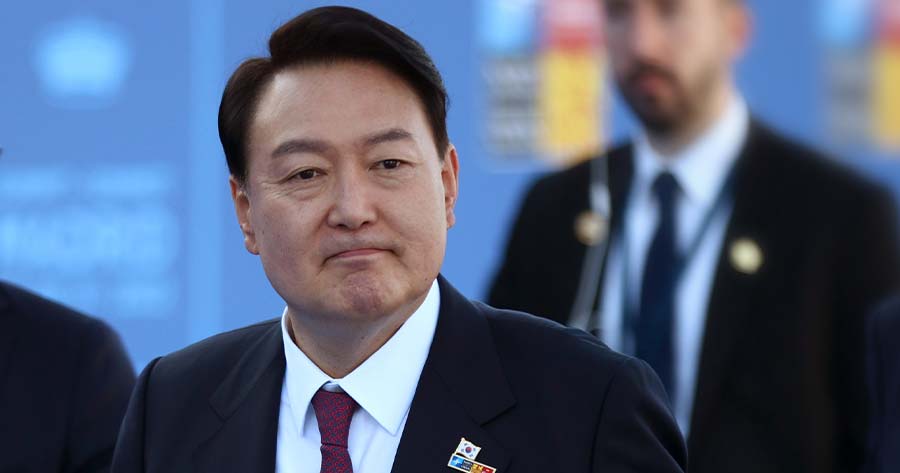In an extraordinary turn of events, South Korea’s democracy faces one of its greatest tests in decades, as the country’s parliament challenges President Yoon Suk Yeol’s declaration of martial law. Captivating television footage captured a dramatic scene as martial law forces clashed with parliament aides armed not with weapons, but with fire extinguishers, fervently resisting an intrusion into their domain.
This daring move by President Yoon, aimed at dispelling what he perceives as “brazen pro-North Korean anti-national forces,” marks the first instance of martial law in South Korea since 1980. Ostensibly designed to restore order and curb the perceived threat from opposition forces, the declaration puts a spotlight on the country’s fragile political landscape.
In a resolute countermove to the president’s action, South Korea’s legislators swiftly convened, defying martial law directives to halt political activities. In a dramatic session, parliament voted overwhelmingly to invalidate President Yoon’s controversial declaration, a clear message that the legislative branch will not be silenced.
The leader of the ruling People Power Party took a bold stand, condemning the declaration as unconstitutional and rallying the public to resist such draconian measures. Echoing these sentiments, the parliament speaker declared the president’s decree illegitimate, showcasing a robust defense of democratic values amidst growing tensions.
President Yoon’s rationale for enacting martial law was rooted in his conviction that it was essential to preserve the nation’s democratic fabric against internal subversion. His focus on domestic political adversaries, rather than direct external threats, has sparked widespread debate and concerns over the erosion of civil liberties.
Coupled with economic repercussions, the situation is even more precarious. Following the announcement of martial law, the Korean won experienced a substantial dip against the U.S. dollar, prompting the central bank to prepare intervention measures to stabilize the volatile market.
As South Korea stands on the brink of potential political and social upheaval, the implications of this unprecedented moment remain unclear. Supporters of President Yoon may view his actions as a necessary defense against subversion, while critics argue it undermines the democratic foundations that have been in place since the 1980s.
This unfolding saga in Seoul is a defining moment in South Korea’s democratic journey, a poignant reminder of the delicate balance between maintaining national security and upholding the rights and freedoms of the citizenry. The nation’s response in the coming days will not only shape its immediate future but also send ripples throughout the geopolitical landscape.





